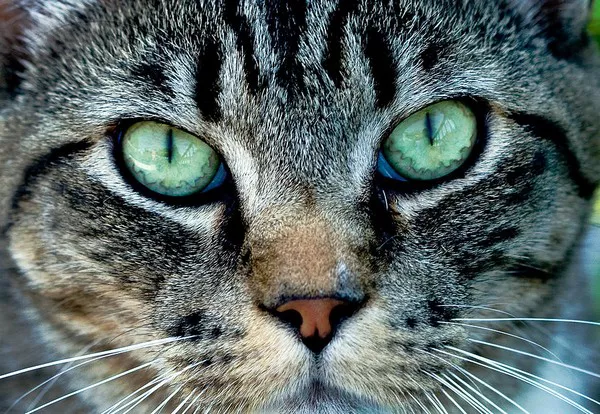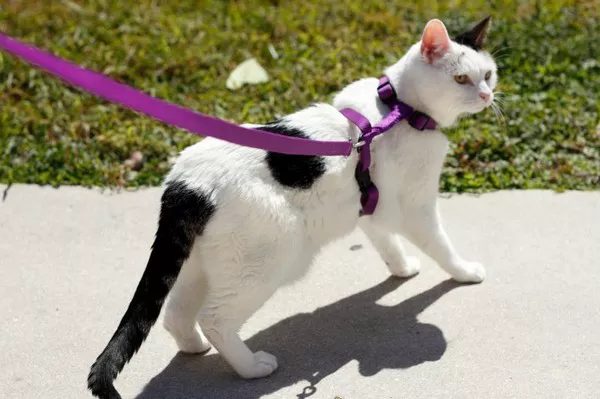Maintaining good oral health is essential for cats, as it impacts not only their teeth and gums but also their overall health. Just like in humans, poor dental hygiene in cats can lead to a range of health issues, from gum disease and tooth decay to more serious concerns such as infections and heart disease. Ensuring that your cat has a diet that supports its dental health is one of the most effective ways to prevent these problems. By choosing the right type of food and incorporating proper cat feeding practices, you can make a significant difference in your cat’s oral and overall health.
Importance of Dental Health
Dental health in cats is often overlooked, yet it is critical for their well-being. Cats are prone to dental issues such as gum disease, plaque buildup, and tooth decay, which can lead to more serious health problems if left untreated.
Preventing Dental Issues
Good dental health is the first line of defense against several common dental issues. Cats are vulnerable to gum disease (gingivitis), tooth decay, and plaque buildup. These conditions can cause discomfort, pain, and even lead to tooth loss. By maintaining a diet that promotes oral health, you can help prevent these issues and keep your cat’s mouth healthy. Cats with healthy teeth and gums tend to have better breath, and they experience less pain or discomfort while eating.
Overall Health Impact
Dental health doesn’t just affect the mouth; it can impact a cat’s entire body. Infections in the mouth can spread to other organs, potentially leading to serious conditions such as heart disease and kidney problems. Research indicates that the bacteria associated with gum disease can enter the bloodstream, increasing the risk of systemic health issues. Therefore, focusing on oral health through proper cat feeding practices is not only beneficial for your cat’s teeth and gums but also for their general health and longevity.
Types of Cat Food for Oral Health
Selecting the right food for your cat’s dental health is essential, and understanding the different types of food available will help you make an informed decision.
Dry Food
Dry food, or kibble, is often recommended for cats’ dental health due to its texture, which helps to scrape away plaque and tartar. When cats chew on kibble, the abrasive texture can help scrub their teeth, reducing plaque buildup. This can contribute to healthier gums and reduce the risk of dental disease. However, it’s important to choose high-quality dry food specifically designed for oral health, as some kibble sizes and textures are better at cleaning teeth than others.
Wet Food
While wet food may not have the same abrasive effect as dry food, it provides essential hydration, especially for cats that don’t drink much water. Wet food is easier for older cats or cats with existing dental issues to chew, and it can be beneficial for cats that have difficulty with dry kibble. However, wet food may contribute to plaque buildup more than dry food, so it’s best to balance wet food with other dental care practices.
Specialized Dental Diets
Some cat foods are specifically formulated to promote dental health. These specialized dental diets often have a unique kibble design that encourages cats to chew more thoroughly, allowing the food to clean their teeth more effectively. Certain veterinary-approved brands create formulas that are recognized by the Veterinary Oral Health Council (VOHC) for their ability to control plaque and tartar. For cats prone to dental issues, these specialized diets can be an effective way to support oral health.
Key Ingredients to Look For
When selecting cat food for oral health, it’s essential to pay attention to the ingredients. High-quality ingredients can make a significant difference in supporting dental and overall health.
High-Quality Protein
Protein is crucial in a cat’s diet, as cats are obligate carnivores. High-quality protein sources like chicken, turkey, and fish provide essential nutrients without unnecessary fillers. Protein-rich diets align with a cat’s natural dietary needs and help maintain muscle mass, while also supporting overall health. Additionally, proteins from animal sources are easier for cats to digest, reducing the buildup of waste materials in the mouth, which can contribute to bad breath.
Low Carbohydrates
Cats do not need a diet high in carbohydrates, and in fact, low-carbohydrate diets are often closer to a cat’s natural diet. Excess carbohydrates can lead to plaque buildup and may not contribute to a cat’s nutritional needs as effectively as protein does. Choosing cat foods with a low carbohydrate content, ideally from whole food sources, can help minimize dental issues related to plaque formation and ensure better overall health.
Natural Ingredients
When it comes to cat feeding, natural ingredients with minimal artificial additives, fillers, and preservatives are ideal. Artificial additives can sometimes irritate the stomach or lead to poor digestion, which may, in turn, affect dental health. Choosing foods with natural ingredients reduces the risk of adverse reactions and promotes overall health, which is crucial for both dental and general well-being.
Top Recommendations for Cat Food That Supports Oral Health
The following cat food options have been selected for their quality ingredients, benefits for dental health, and positive reviews from both pet owners and veterinarians.
Hill’s Prescription Diet t/d Dental Care Dry Cat Food
Hill’s Prescription Diet t/d is one of the most recommended brands for dental health. This dry food is specially formulated with a unique kibble texture that helps scrub away plaque and tartar as the cat chews, promoting cleaner teeth and healthier gums. It is also VOHC-accepted for plaque and tartar control, meaning it meets the Veterinary Oral Health Council’s standards for supporting dental health. While Hill’s Prescription Diet requires a veterinary prescription, it’s highly effective for cats prone to dental issues and can make a significant difference in their oral health.
Ziwi Peak Air-Dried Mackerel and Lamb Recipe
Ziwi Peak’s Air-Dried Mackerel and Lamb Recipe is an excellent option for cats with dental health concerns. This food is air-dried, providing a crunchy texture that helps to reduce plaque without the need for traditional kibble. Made with whole seafood and lamb, it’s high in quality protein and low in carbohydrates, making it suitable for a cat’s natural diet. With minimal fillers and a focus on whole, natural ingredients, Ziwi Peak’s formula supports both dental and overall health.
Stella & Chewy’s Absolutely Rabbit Dinner Morsels
Stella & Chewy’s Absolutely Rabbit Dinner Morsels is a freeze-dried raw food option made with rabbit meat, organs, and bones. This diet is high in protein and low in carbohydrates, closely resembling what a cat would eat in the wild. Freeze-dried foods like Stella & Chewy’s provide a satisfying crunch that can help clean teeth, while also delivering high-quality, natural nutrition without the unnecessary fillers found in some other foods. The novel protein source, rabbit, is also a great option for cats with food sensitivities or allergies.
Feeding Tips for Supporting Dental Health
Incorporating dental health-friendly foods into your cat’s diet can make a substantial difference, but proper feeding techniques are also essential to maximize benefits.
Gradual Transition
When switching your cat to a new food, particularly one designed for dental health, a gradual transition is recommended. Sudden changes in diet can cause digestive upset, so it’s best to mix the new food with your cat’s current food over the course of a week or so. This approach allows your cat to adjust to the new food and reduces the risk of digestive issues, ensuring a smooth transition.
Consulting a Vet
Before making significant changes to your cat’s diet, especially if your cat has existing health conditions, consult with a veterinarian. A vet can recommend the best dental health-specific food based on your cat’s unique needs, as well as provide guidance on proper feeding practices. Regular dental check-ups with the vet are also crucial for monitoring your cat’s oral health and addressing any issues before they become more severe.
Additional Care for Your Cat’s Dental Health
Feeding your cat a dental-specific diet is an excellent step, but it should be combined with other dental care practices for the best results.
Regular Brushing
Brushing your cat’s teeth is one of the most effective ways to maintain dental health. While many cats may resist at first, gradual introductions to brushing can make it a more tolerable experience. Use a cat-specific toothbrush and toothpaste, as human products are not suitable for pets. Brushing helps remove plaque and food particles, reducing the risk of gum disease and tooth decay.
Dental Treats
Dental treats are another tool for supporting your cat’s dental health. These treats are designed to help clean teeth and freshen breath, providing an additional abrasive effect similar to that of dry kibble. Look for treats with the VOHC seal, as these have been tested and approved for their effectiveness in promoting oral health.
Conclusion
Good dental health is a vital component of a cat’s overall health, affecting not only the mouth but also systemic health and quality of life. By focusing on cat feeding practices that support oral health, such as choosing the right type of food, incorporating high-quality proteins, and selecting foods with minimal fillers, you can help ensure your cat maintains a healthy mouth.
Related Topics


























